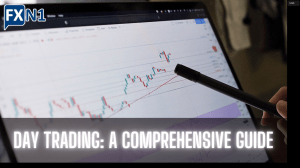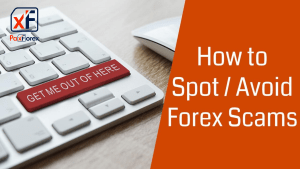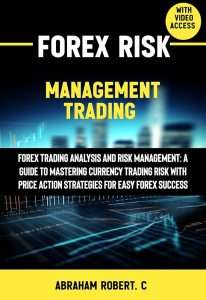Choosing the Right Forex Trading Broker
Unlock forex trading success! Choosing the right broker is crucial. We help you navigate the complexities and find a trustworthy partner to conquer the forex market. Start your journey today!
The forex market, a colossal arena of global currency exchange, presents both immense opportunities and significant risks. Successful navigation hinges critically on selecting a trustworthy and reliable forex trading broker. Your broker acts as your gateway to this dynamic market, influencing your trading experience profoundly. Therefore, a thorough understanding of the factors involved in choosing the right broker is paramount for achieving your financial goals.
Understanding the Forex Market Landscape
The foreign exchange market, or forex, is decentralized and operates 24 hours a day, five days a week. This global marketplace allows individuals and institutions to exchange currencies at fluctuating rates. These fluctuations create opportunities for profit, but also expose traders to potential losses. Understanding these dynamics is crucial before engaging with a forex trading broker.
Types of Forex Brokers
Several types of forex brokers cater to different trader profiles and needs. Market makers, for instance, act as counterparties to your trades, while ECN (Electronic Communication Network) brokers connect you directly to other market participants. Choosing between these models depends on your trading style and risk tolerance.
- Market Makers: These brokers offer tighter spreads but may have conflicts of interest.
- ECN Brokers: These brokers offer greater transparency and potentially wider spreads, but often provide access to deeper liquidity.
- STP (Straight Through Processing) Brokers: These brokers route your orders directly to liquidity providers, offering a balance between market maker and ECN models.
Key Factors to Consider When Choosing a Forex Trading Broker
Selecting the right forex trading broker requires careful consideration of several critical aspects. Ignoring these factors can lead to significant financial setbacks and a frustrating trading experience. Prioritize due diligence and thorough research before committing to any broker.
Regulation and Licensing
A reputable forex trading broker will be regulated by a recognized financial authority. This regulation provides a layer of protection for traders, ensuring compliance with industry standards and offering recourse in case of disputes. Always verify the broker’s regulatory status before opening an account.
Spreads and Commissions
Spreads represent the difference between the bid and ask price of a currency pair. Lower spreads are generally preferable, as they translate to lower trading costs. Commissions are additional fees charged by some brokers for executing trades. Carefully compare the total cost of trading across different brokers, considering both spreads and commissions.
Trading Platform and Tools
The trading platform is the interface through which you will execute trades and monitor your positions. A user-friendly and feature-rich platform can significantly enhance your trading experience. Look for platforms that offer advanced charting tools, technical indicators, and automated trading capabilities.
Account Types and Minimum Deposits
Forex brokers typically offer various account types, each with different features and minimum deposit requirements. Consider your trading style and capital before selecting an account type. Some brokers offer micro accounts for beginners with smaller deposits, while others cater to high-volume traders with substantial capital.
Customer Support and Education
Reliable customer support is crucial, particularly for novice traders. Choose a broker that provides readily accessible and responsive support channels, such as phone, email, and live chat. Educational resources, such as webinars, tutorials, and market analysis, can also prove invaluable in your trading journey.
Security and Data Protection
Your personal and financial information must be securely protected. Ensure the broker employs robust security measures, including encryption and firewalls, to prevent unauthorized access and data breaches. Look for brokers that comply with relevant data protection regulations.
Hidden Costs and Fees to Watch Out For
Beyond the obvious spreads and commissions, several hidden costs can significantly impact your trading profitability. Understanding these hidden fees is crucial for making informed decisions and managing your trading expenses effectively.
Overnight Financing (Swap Fees)
Holding positions overnight can incur swap fees, reflecting the interest rate differential between the currencies involved. These fees can be substantial, especially for longer-term positions. Understanding these fees is crucial for managing your trading costs.
Inactivity Fees
Some brokers charge inactivity fees if your account remains dormant for an extended period. Be aware of these fees and ensure you understand the broker’s inactivity policy.
Withdrawal Fees
Withdrawal fees can vary significantly across brokers. Compare the withdrawal fees of different brokers before making your choice.
Account Management Fees
Some brokers charge monthly or annual account management fees. These fees can add up over time, impacting your overall profitability. Always check for account management fees before opening an account.
Strategies for Choosing a Forex Trading Broker
A systematic approach to selecting a forex trading broker can significantly improve your chances of finding a suitable partner for your trading endeavors. This involves a combination of research, comparison, and careful evaluation.
Conduct Thorough Research
Begin by researching different forex trading brokers, considering their reputation, regulatory status, and client reviews. Online forums and independent review websites can provide valuable insights.
Compare Brokers Side-by-Side
Create a comparison table to evaluate different brokers based on key factors such as spreads, commissions, account types, platform features, and customer support. This comparative analysis will aid in making an informed decision.
Test the Trading Platform
Before opening a live account, try out the broker’s trading platform through a demo account. This allows you to familiarize yourself with the platform’s features and functionality without risking real capital.
Read Client Reviews and Testimonials
Examine client reviews and testimonials to gain insights into other traders’ experiences with the broker. Pay attention to both positive and negative feedback, looking for recurring themes or patterns.
- Check independent review sites.
- Look for reviews on forums and social media.
- Be wary of overly positive or negative reviews that lack detail.
Consider Your Trading Style and Goals
The ideal forex trading broker will align with your individual trading style and financial goals. If you are a scalper, you may prioritize low spreads and fast execution speeds. If you are a swing trader, you may be less concerned about spreads and more focused on charting tools and educational resources.
Choosing the right forex trading broker is a crucial step in your forex trading journey. Thorough research, careful consideration of key factors, and a strategic approach will significantly increase your chances of success. Remember, a well-chosen broker can be a valuable partner, providing you with the tools and resources necessary to navigate the complexities of the forex market effectively and confidently. Understanding the market, analyzing your needs, and diligently researching your options are key to finding a broker that aligns perfectly with your trading objectives. Don’t rush the process; take your time to make an informed decision that will positively impact your financial future.







